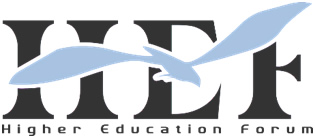
Paper Format
Please note that it is the authors' responsibility to adhere to the paper format.
Scope of the Journal of Education and Psychology
This journal seeks to engage a broad audience, including educators, psychologists, researchers, policymakers, and practitioners who are interested in the interconnections between educational practices and psychological theories. The journal focuses on topics such as cognitive development, learning technologies, educational interventions, and the psychological impacts of academic policies. We welcome a variety of article types, including original research, reviews, case studies, and theoretical papers.Our aim is to provide a platform for innovative and interdisciplinary research that advances understanding and practice in the fields of education and psychology, including but not limited to cognitive development, mental health, learning technologies, and educational interventions.
1. Educational Psychology
 | Exploration of learning and developmental theories. |
 | Examination of cognitive processes relevant to education. |
 | Investigation into motivation and self-regulated learning. |
 | Assessment and evaluation methodologies within educational contexts. |
2. Teaching and Learning
 | Innovative strategies and methodologies in teaching. |
 | Curriculum design and effective instructional practices. |
 | Impact of technology on the learning experience. |
 | Dynamics of classroom management and teacher-student interactions. |
3. Psychological Assessment and Measurement
 | Development and validation of psychological assessments. |
 | Application of assessments in educational settings. |
 | Considerations regarding fairness, reliability, and validity in testing. |
4. Special Education and Inclusive Practices
 | Strategies for effectively teaching students with disabilities. |
 | Psychological implications of special education practices. |
 | Role of educators in fostering an inclusive learning environment. |
5. Developmental Psychology in Educational Contexts
 | Relationship between child and adolescent development and learning. |
 | Social and emotional development within educational settings. |
 | Influence of family and community on educational success. |
6. Educational Policy and Leadership
 | Analysis of educational policy effects on learning outcomes. |
 | Exploration of leadership styles within educational institutions. |
 | Strategies for promoting equity and inclusion in education. |
7. Mental Health and Well-Being in Educational Settings
 | Systems of psychological support in schools. |
 | Addressing mental health challenges faced by students and educators. |
 | Promoting psychological well-being in educational environments. |
8. Research Methodology in Education and Psychology
 | Application of quantitative and qualitative research methods. |
 | Evaluation and interpretation of research findings. |
 | Ethical considerations in educational and psychological research. |
9. Cross-Cultural and Comparative Education
 | Examination of cultural influences on educational practices and psychological principles. |
 | Comparative studies of global education systems and psychological approaches. |
10. Emerging Trends and Issues
 | The role of social media and technology in shaping educational experiences. |
 | Current challenges in education and psychology, including issues of equity and mental health crises. |
11. English as a Second Language (ESL)
 | Effective teaching methods, curriculum development, and classroom strategies tailored for ESL learners. |
 | Integration of technology, such as digital tools and AI applications, in enhancing ESL instruction and learning. |
 | Sociocultural and psychological influences, such as identity, motivation, and anxiety, on ESL learning. |
12. Linguistics
 | Theories and analysis of language structure, including phonetics, phonology, morphology, syntax, and semantics. |
 | Sociolinguistics and the relationship between language, culture, and society. |
 | Psycholinguistics and cognitive processes in language acquisition, comprehension, and production. |
13. Online Learning and Education
 | Self-Efficacy in Online Learning: Examining how students' confidence in their ability to succeed affects their performance and engagement in online courses. |
 | Challenges of Cognitive Demand in Online Learning: Exploring the mental effort required to process information in online learning environments and its impact on student learning and retention. |
 | Social Presence and Interaction in Online Learning: Investigating the importance of social presence and interaction among students and instructors in online learning environments, and how these factors influence learning outcomes and student satisfaction. |
Types of Contributions
The journal invites a diverse array of contributions, such as:
| ● | Empirical research articles |
| ● | Theoretical papers |
| ● | Literature reviews |
| ● | Case studies |
| ● | Policy analyses |
| ● | Book reviews |
| ● | Commentary and opinion pieces |
| ● | Original Research Articles |








































